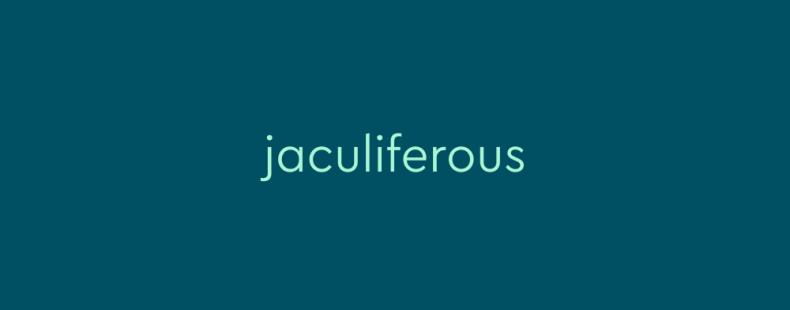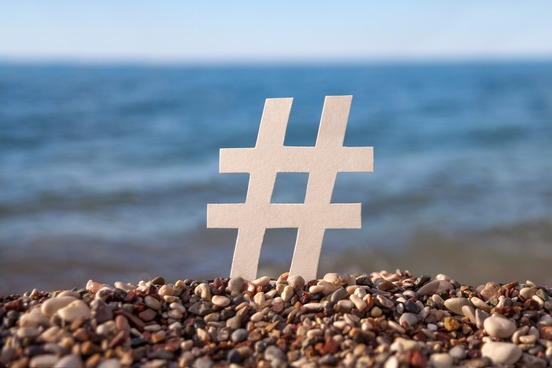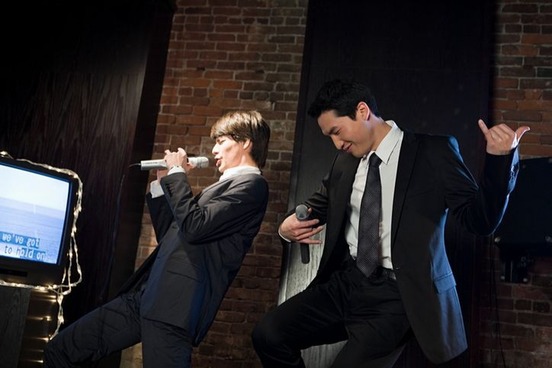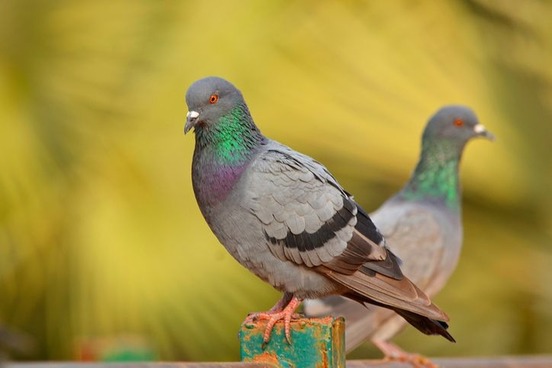
By
Last updated:
January 7, 2023
Learning English is not always easy. English is especially known for having a crazy vocabulary that can make things tricky for learners.
Even if you’ve mastered all the important grammar rules, slang words and idioms, weird English words come along and can still leave you feeling a bit confused!
Lucky for you, this post will introduce you to 15 weird English words that you should know!
Contents
- 1. Kerfuffle (kəˈfʌf(ə)l)
- 2. Hullaballoo (ˌhʌl.ə.bəˈluː)
- 3. Cacophony (kəˈkɒf(ə)ni)
- 4. Ragamuffin (ˈraɡəmʌfɪn)
- 5. Whippersnapper (ˈwɪpəsnapə)
- 6. Gobbledygook (ˈɡɒb(ə)ldɪˌɡuːk)
- 7. Gibberish (ˈdʒɪb(ə)rɪʃ)
- 8. Poppycock (ˈpɒpɪkɒk)
- 9. Discombobulate (ˌdɪskəmˈbɒbjʊleɪt)
- 10. Flummox (ˈflʌməks)
- 11. Curmudgeon (kəːˈmʌdʒ(ə)n)
- 12. Lackadaisical (ˌlakəˈdeɪzɪk(ə)l)
- 13. Woebegone (ˈwəʊbɪɡɒn)
- 14. Lollygag (ˈlɒlɪɡaɡ)
- 15. Frankenfood (ˈfraŋk(ə)nfuːd)
Download:
This blog post is available as a convenient and portable PDF that you
can take anywhere.
Click here to get a copy. (Download)
1. Kerfuffle (kəˈfʌf(ə)l)
Kerfuffle (noun) has been around since the early 1800s and probably came from either Scottish Gaelic or from Celtic Irish, the languages that were used historically in Scotland and Ireland.
It means to make a fuss or a bother, usually when people have different points of view.
What’s all the shouting for? Why are you making such a kerfuffle?
2. Hullaballoo (ˌhʌl.ə.bəˈluː)
“Did you hear all that hullaballoo in the office today?”
A word that really sounds like what it means, hullaballoo (noun) is the loud noises and shouting that people make when they’re angry.
It’s been part of the English language since the middle of the 18th century.
3. Cacophony (kəˈkɒf(ə)ni)
Another word related to noise, a cacophony (noun) is a mixture of horrible sounds. Imagine birds screeching, alarm bells ringing and babies screaming… and you’ve got yourself a cacophony!
You may already know that words that end in phone or phony are related to sound in some way. Cacophony comes from a Greek word made up from kacos (bad) and phone (sound). It entered English in the mid 1600s.
4. Ragamuffin (ˈraɡəmʌfɪn)
Ragamuffin (noun) comes from the English that was used during the Middle Ages.
You’ve probably heard the word rag, right? A dirty and scruffy piece of old cloth. So it’ll make sense to know that a ragamuffin is a person who wears dirty and scruffy clothes – clothes that are just like rags!
It’s usually used for children, and you may also sometimes hear it used to describe scruffy-looking animals.
I send my children to school dressed smartly, and they come home like little ragamuffins!
5. Whippersnapper (ˈwɪpəsnapə)
Nothing to do with whips or snaps, say whippersnapper (noun) quickly and you’ll create a funny and harsh sound!
Although this term is a little bit old-fashioned today, it’ll certainly make people smile if you use it.
It’s been part of the English language since the 17th century and is a mixture of two terms. One referred to a lazy person who had no ambitions. The other term was used for young people who lived on the street and did bad things, like stealing.
The meaning has changed over the years, and today it’s used for a young person who’s too confident and perhaps a little cheeky! It’s a perfect word to use for an inquisitive child who just can’t stop questioning and correcting their parents!
6. Gobbledygook (ˈɡɒb(ə)ldɪˌɡuːk)
Close your eyes for a second and think of a turkey. What sound does it make? Does it sound something like “gobble, gobble, gobble”? That’s exactly where this word came from!
Created from the meaningless sound that turkeys make, gobbledygook (noun) was originally an American English word. It was created in the 1940s to mean words that are nonsense or have no meaning.
It also describes when people use too many technical words and so other people can’t understand what they’e saying.
The Director was talking a load of gobbledygook in that meeting. I have no idea what he wants!
7. Gibberish (ˈdʒɪb(ə)rɪʃ)
If someone is talking gobbledegook they’ll also be talking gibberish!
Gibberish (noun) means the same: nonsense words and phrases that sound like English but have little meaning.
Gibberish is an older term than gobbledegook. It’s been in use since the mid 16th century. It’s not known where the word came from, but many people believe it was taken from either a similar Spanish or Swedish word.
8. Poppycock (ˈpɒpɪkɒk)
Have you ever listened to somebody trying to talk about something that they know absolutely nothing about? You know that what they’re saying is completely untrue, yet they insist on continuing to talk?
It’s highly likely that they’re talking poppycock! Poppycock has nothing to do with poppies (a type of flower) or cocks (a male bird and a slang term for a man’s intimate body parts!)
Poppycock actually came from the Dutch word pappekak, which is made from pap (soft) and kak (poop!). It’s been part of English since the 1800s.
What a load of poppycock!
9. Discombobulate (ˌdɪskəmˈbɒbjʊleɪt)
Mainly used in North American English, if somebody’s talking lots of gibberish, gobbledegook and poppycock, they may be trying to discombobulate (verb) another person. You may feel a little discombobulated (adjective) by all these strange words!
Confused? You should be! Discombobulate means to confuse!
It’s been used since the mid 19th century, and is mainly used in a funny way.
What’s the matter? You look a little discombobulated!
10. Flummox (ˈflʌməks)
If you’re now feeling very discombobulated you are also flummoxed (adjective)!
To flummox a person (verb) means to confuse them a lot.
It came into the English language in the middle of the 19th century. It was taken from dialects used in some parts of the UK.
11. Curmudgeon (kəːˈmʌdʒ(ə)n)
Are you trying to find just the right word for someone who’s very bad-tempered and grumpy? Curmudgeon (noun) might be just the word that you’re looking for!
Dating back to at least the 16th century, this word has been used for a long time.
I don’t like our English teacher… he is a real curmudgeon!
12. Lackadaisical (ˌlakəˈdeɪzɪk(ə)l)
How about if you want to describe that someone’s lazy and has no enthusiasm or determination? Lackadaisical (adjective) would be perfect in this situation!
It’s been in use since the 1700s, although where it came from isn’t clear.
My sister has no job and is doing nothing to find one. She is so lackadaisical.
13. Woebegone (ˈwəʊbɪɡɒn)
Another terrific adjective. Can you guess what a woebegone person looks like?
It’s easy to break this word into two parts – woe (extreme sadness) and begone (an old-fashioned word that means surrounded by something).
So, woebegone means “surrounded by sadness.” It comes from Middle English, English that was used during the Middle Ages.
Why do you look so woebegone?
14. Lollygag (ˈlɒlɪɡaɡ)
What a fantastic verb: to lollygag! Nothing to do with lollies or gags, it actually means to be idle and lazy or to waste time.
It’s most common in the USA. It’s not unusual to hear parents shout to their children to “stop lollygagging” – now you’ll know what they’re talking about!
The word has been used since the 1800s.
15. Frankenfood (ˈfraŋk(ə)nfuːd)
Very new when compared to all the others on the list, the word Frankenfood (noun) came into existence in the 1990s.
It’s used informally for genetically modified (GM) foods. GM foods are those that have been scientifically altered in some way, that haven’t grown naturally.
Frankenfood is a combination of the words Frankenstein and food.
I’m not eating there! They use Frankenfoods!
While these are all great examples of weird English words, they are not the only ones out there. To find more strange words, you can expose yourself to native English and naturally come across some of those funky words.
Try reading books, watching movies or listening to music in English. All of these are great ways to pick up new vocabulary.
You can also try FluentU which intentionally introduces you to English as it’s actually used through authentic videos like movie clips, music videos etc.
There are also learning tools like interactive subtitles, quizzes and flashcards that will help you learn. FluentU is available on iOS and Android.
There’s no need to feel discombobulated if you hear gibberish – learning new words can be easy once you start!
Download:
This blog post is available as a convenient and portable PDF that you
can take anywhere.
Click here to get a copy. (Download)
The biblioklept holds her bounty tightly.
Definition: one who steals books
Biblioklept is, in at least some sense of the word, fairly useless. It is two syllables longer than book thief. It is also unlikely to be understood by some portion of the people with whom you use it, and so cannot be said to aid in communication. Happily, we do not have a merit based vocabulary, and words that are useless have the same rights of inclusion as do those that are useful.
Many eminent characters have been Biblioklepts.
—The Saturday Review (London, UK), 23 Oct. 1880
Acnestis
If you’ve got an itch on your acnestis, grab a back scratcher.
Definition: “The part of the back (or backbone) between the shoulder blades and the loins which an animal cannot reach to scratch” (Oxford English Dictionary)
This lovely word is not often found; one of the few dictionaries that does define it, the Oxford English Dictionary, notes that it is “rare in genuine use.” You may use this word in any fashion you see fit. In fact, your need of it doesn’t even need to be genuine.
With the stocks one assistant is sufficient. They are quite satisfactory for operations on the withers, the acnestis, the shoulders, the buttocks, and the tail.
—Louis A. Merillat, Veterinary Surgery, 1906
Meldrop
Does this cold medicine tackle meldrops?
Definition: “A drop of mucus at the nose, whether produced by cold or otherwise” (English Dialect Dictionary)
Meldrop used to be in Merriam-Webster dictionaries (it is included in the 1934 edition of our Unabridged, defined rather poetically as “a pendent drop, as of mucus at the nose, or of dew”). It is not in any of our current offerings. The word does not now have sufficient breadth of usage to merit inclusion, but if you want to see it get back in our dictionary make sure all your friends start using meldrop in published writing.
But looke againe on the other part of snotty nosd Gentlemen, with their drouping mustaches covering their mouth, and becomes a harbroy to meldrops, and a sucking sponge to al the watery distillations of the head, he will not spare but drinke with any bodie whatsoever, and after hee hath washed his filthie beard in the cup, and drawing out dropping, he wil suck the haire so hartily with his vnder lip.
—Simion Grahame, The Anatomie of Humors, 1609
Start a Twitter octothorpe trend.
Definition: the symbol #
The origins of octothorpe are shrouded in mystery; we are fairly certain that the word began being used in the early 1970s, but we do not know what led to the prefix for “eight” (-octo) being added to the component for thorpe (“thorpe”).
They could have done what the Dozenal Society is trying to do. The dozenals have banished 10 from their vocabulary. Instead, 10 is called dek and designated by an asterisk, *. Eleven is called el and designated by an octothorpe, #.
—Irene Virag, Newsday (Long Island, NY), 26 Oct. 1990
The face of a woman who just found out her favorite roller coaster is also a nauseant.
Definition: an agent that induces nausea
In the event that you ever find yourself feeling nauseated (or nauseous; either one is fine), say, perhaps by a meldrop clinging tenaciously to the nose of the person with whom you are speaking, it may prove useful to distract yourself with the knowledge that there is a word for the thing that makes you feel that way. Before you use the word loosely, you should know that nauseant is generally used in a medical sense, referring to a specific agent that causes nausea (and often is an expectorant, rather than just anything which turns your stomach).
Having thus, as we conceived, exhausted all the material medica, we turned to the second class, which is called atonics, and which we found to consist of blood-letting, issues and setons, nauseants, cathartics, gases, and abstinence.
—Monthly Review (London, UK), Nov. 1810
Time for a battle of math nerds and word nerds.
Definition: the first and second quantity in an addition of two things
Have you ever found yourself staring at a piece of paper with “3 + 4” written on it, and wondered ‘what is the proper term for each of these two respective quantities?’ No? The first number is the augend and the number that is added to it is the addend. You’re welcome.
If we ask what number increased by b gives c, we seek the augend.
—Hermann Schubert, The Monist (Chicago, IL), 1 Jan. 1893
I’m pretty sure there’s an obelus or two in the mix.
Definition: the symbol ÷
In addition to serving as the sign indicating division, the obelus is also used to mark a questionable passage of text. Our dictionary also uses it for matters of pronunciation. It should be noted that the entry for the word obelus itself has no obelus in it. However, you will find this division sign in a number of other entries, such as nuclear, where we list a pronunciation variant that is stigmatized (÷-kyə-lər).
The obelus, or division sign, is placed before a pronunciation variant that occurs in educated speech but that is considered by some to be questionable or unacceptable.
—Merriam-Webster.com
Harpists and people who use wrest pin in their daily conversation—both rare creatures.
Definition: a pin in a stringed musical instrument (as a harp, piano) around which the ends of the strings are coiled and by which the instrument is tuned
Nevermore will you have to gaze into the depths of a piano, and, much as one ponders the depths of one’s own soul, look at the pins that are wrapped tightly with coiled wire, and wonder ‘what do you suppose they call those things?’
N. B. The trade supplied with Pianoforte wire, wrest pins, hoppers, keys, felts, and every requisite for repairing Pianofortes.
—The Sydney Morning Herald (Sydney, NSW, Aus.), 16 Feb. 1853
Definition: a person who never laughs
The humorless agelast comes from the Greek word agélastos (“not laughing, grave, gloomy»), and not, as one might suppose, from the fact that spending any time around such a person feels like it lasts an age. Agélastos in turn comes gelân (“to laugh”), the same word that gives us gelastic («arousing or provoking laughter»).
Add to these a gift of irony—that confounder of the literalists and Agelasts—perfect self-possession and an imperturbable sang-froid, impenetrability of expression and purpose and the equipment of the Dandy seems to be complete.
— Temple Bar (London, Eng.), Apr. 1890
Amatorculist
Definition: «A little insignificant lover; a pretender to affection» (Samuel Johnson, A Dictionary of the English Language, 1755)
When one sees how pleased many people are to discover this word, one that finally will serve to provide an accurate description of some past lover, it is clear that amatorculist has not received the attention it deserves. The word is almost entirely unknown outside of dictionaries, and lexicographers seem to take a certain vicious glee in defining it. Joseph Wright, in his 1867 Dictionary of Obsolete and Provincial English defined the word as «A wretched lover or galant,» and Nathan Bailey, in his 1736 dictionary, referred to it as «a trifling Sweet-heart, a general Lover.»
If you are interested in the proper word to describe an insignificant love affair, rather than an insignificant lover, it is amourette.
Why, to tell you the truth, Squire Randal, as to the amatorculist, and his vertiginous gilt-piece of mutability, to such I have nothing to say, and with such I have nothing to do.
— James Hogg, Tales and Sketches, 1866
Pot-valor
Definition: boldness or courage resulting from alcoholic drink
The fancy way of saying liquid courage, pot-valor is the perfect word to describe how imbibing a few ounces of something can make a very bad idea seem like something you should definitely do right now. Unfortunately, when you are at the point when this word will be most applicable to you, chances are good that you will also be too drunk to remember what it is. Write it down on your arm before you go out tonight.
Againe, some cowards will so dare and bragge out a man in company, with such swaggering words, whereby the heaters should thinke there were not a better man to be found: and if it be in a Faire or Market, then he will draw his weapons, because he knoweth that he shall be soone parted, for the people will say, that such a one and such a one made a great fray to day, but I account this but pot-valour, or a Cowards fray to fight in the streete, for a man can giue no due commendations of manhood vnto such fighters, for there is no valour in it.
— Joseph Swetnam, The schoole of the noble and worthy science of defence, 1617
Definition: of or relating to pigeons
Pigeons get short-shrift in our stable of avian metaphors. We speak of someone with fine eyesight as eagle-eyed, and hawk lends itself to a variety of words (hawk-like, hawkish, etc.), but rarely do we compare anyone to the humble, intelligent pigeon. Truth be told, it is unlikely that you have a distinct need to use this word anytime soon, but if it happens we want you to be prepared.
Beside the poor, who, to misquote a scriptural phrase, are always in evidence, and the scarlet fever epidemic, which, thank goodness, is abating, London at this writing has a congress of the National Society of French Professors, an exhibition of the National Peristeronic Society and a fog—a fog with a big F.
— The Boston Herald, 29 Jan. 1888
Hirquiticke
Definition: «one past fourteene yeeres of age, beginning to bee moved with Venus delight» (Henry Cockeram, An English Dictionary, 1623)
For those of you who are unaccustomed to reading definitions written in the linguistic register of an early-17th century smarty-pants lexicographer, the meaning of the word above is, well, «horny teenager.» This gives us a very fine example of how occasionally the words for common things are themselves quite uncommon, as hirquiticke is extremely rare. It is uncertain where Cockeram found the word, as we have no evidence of actual use prior to 1623, although he may have borrowed it from Thomas Eliot’s Latin dictionary of 1538, which defined hirquitalus as «a chylde, whiche passeth the age of xiiii yeres, and begynneth to be styrred with lechery.»
The Latin word for «he-goat» is hircus, from which we get hircine («of, relating to, or suggestive of a goat; especially: resembling a goat in smell»). Occasional writers have used a variant of this root to make fanciful nonce-words based on the goat’s reputed libidinousness.
To speak of her hirquitalliency at the elevation of the pole of his Microcosme, or of his luxuriousness to erect a gnomon on her horizontal dyal, will perhaps be held by some to be expressions full of obscœness, and offensive to the purity of chaste ears.
— Thomas Urquhart, Ekskybalauron, 1652
More Obscure Words
We strive to bring you the rarest words possible.
VIEW ALL >
Here is our top list of dictionary words that you can add to your writing. Read our guide.
Although the exact number of words in the English language is still uncertain, we use more than 170,000 common and unusual words today. Unusual English words can make your writing and speaking more interesting. Check out our list of the most extraordinary words to expand your vocabulary and upgrade your writing skills.
Contents
- What Are Unusual Words?
- Unusual Nouns
- Unusual Adjectives
- Unusual Verbs
- Unusual Beautiful English Words
- More Unusual Words in the English Dictionary
- Author
What Are Unusual Words?
These are the words recorded in different dictionary versions that are not usually used in conversation or writing. However, some writers employ unusual words because they are fun, unique, and sometimes the only way to get their message across or to immerse readers in a specific historical era or fantasy setting.
| Aboideau | Hospitium | Quell |
| Abord | Hypnosis | Quincunx |
| Adhibit | Idyllic | Quintessence |
| Agastopia | Impignorate | Quire |
| Ambiguous | Immure | Quixotic |
| Aurora | Incendiary | Rambunctious |
| Barmcloths | Jejune | Renaissance |
| Bastinade | Jentacular | Sanguine |
| Bungalow | Kakorrhaphiophobia | Scrumptious |
| Bypass | Levant | Serene |
| Cachinnate | Limerence | Serendipity |
| Caffoy | Lithest | Snood |
| Calvary | Loquacious | Tenacious |
| Capricious | Lucid | Tintinnabulation |
| Chads | Mabble | Tittynopes |
| Cherish | Melancholy | Triskaidekaphobia |
| Cynical | Mellifluous | Ulotrichous |
| Dap | Misanthrope | Uncanny |
| Deliquescent | Narrative | Uranism |
| Decalcomania | Nebulize | Vamp |
| Demure | Nemesis | Velleity |
| Dragoman | Nostalgic | Wanderlust |
| Eclaircise | Nudiustertian | Wanton |
| Eftsoons | Obdurate | Wherewithal |
| Elixir | Omnishambles | Winklepicker |
| Esoteric | Opulence | Xenophobia |
| Euphoria | Paradox | Xertzes |
| Flabbergast | Pejorate | Yarborough |
| Flimflam | Persiflage | Yawner |
| Floccinaucinihilipilification | Perspicacious | Yearn |
| Gallizes | Pique | Zealot |
| Guise | Plethora | Zenith |
| Halfpace | Pristine | |
| Hent | Quackles |
Unusual Nouns
The English dictionary has thousands of fancy and uncommon words you can see in some writings but won’t be able to hear in conversations. Like other nouns, people use these words to name living and non-living things.
- Agastopia
Her previous penchant for touching her neck has turned into an agastopia.
- Chads
Niki has a talent for creating art using chads of different paper types.
- Flimflam
His explanation for cheating on his wife is a complete flimflam.
- Floccinaucinihilipilification
Floccinaucinihilipilification is a 29-character word among the longest words in the English dictionary.
- Halfpace
The client requests a larger halfpace with bigger storage space under the stairs.
- Kakorrhaphiophobia
Juliet needs professional help as her Kakorrhaphiophobia now interferes with her daily life.
- Limerence
Jay doesn’t know if what he feels towards his friend is love or pure limerence.
- Omnishambles
Derren’s birthday party is disorganized, resulting in omnishambles and more expenses.
- Persiflage
The brothers’ persiflage demonstrates their fondness for each other.
- Quincunx
Our dance teacher loves using the quincunx formation in our performances.
- Quire
To complete our medieval era theme, we must create quire manuscripts.
- Serendipity
My best serendipity was when mom made me clean out the attic, and I found vintage and branded clothes.
- Snood
The wife knits a snood to keep her husband’s neck warm in the coming winter.
- Tintinnabulation
Jake rushes to his window at the sound of familiar tintinnabulation from the streets below.
- Tittynopes
Mom asked the waiter to pack our tittynopes so she could give them to our animals at home.
- Triskaidekaphobia
If you notice that most high buildings don’t have a 13th floor, it’s because the owners and contractors have triskaidekaphobia.
- Velleity
World peace lately seems like a velleity.
- Winklepicker
My dad has winklepicker boots because they remind him of his favorite British rock band, Teddy Boys.
- Yarborough
Gray accepts his loss as he looks at the yarborough in his hand.
- Zenith
No one knows when he will reach the zenith of his popularity.
Unusual Adjectives
Adjectives describe the characteristics and features of a person, thing, animal, place, and others. Unusual adjectives are essential because profound and unusual words make the description more beautiful and compelling.
- Ambiguous
The new president has ambiguous dreams for the country.
- Capricious
His lab results for the past three months have been very capricious.
- Cynical
Having Alexa as a group leader is terrible because she has a cynical view of everything.
- Deliquescent
Our chemistry teacher asked us to bring a deliquescent substance for our experiment tomorrow.
- Esoteric
Sunshine presents esoteric ideas to her managers that they do not clearly understand.
- Jentacular
Johnny likes to upload videos of his post-jentacular exercise on his social media accounts.
- Loquacious
Hani is a loquacious member and deserves to represent the team during the discussions.
- Lucid
Her lucid dreams make her believe she’s a modern prophet.
- Narrative
Our English professor mentions a 5,000-word narrative essay about life goals as our final project.
- Nostalgic
Folding my late grandfather’s clothes gives me a nostalgic feeling.
- Nudiustertian
You should have told me you couldn’t do that nudiustertian afternoon when we were together.
- Obdurate
Kevin has a very obdurate attitude that always causes friction in their relationship.
- Perspicacious
A good leader must have great perspicacious thinking.
- Quixotic
In most cases, children create quixotic goals and change them as they grow.
- Scrumptious
Just thinking about my mother-in-law’s scrumptious dish makes my mouth water.
- Serene
I recommend going to a serene place away from the city and technology for total relaxation.
- Tenacious
His tenacious studying keeps him on top of the students’ ranking.
- Ulotrichous
Mikaela has always had ulotrichous hair and wants to see if straight hair suits her.
- Uncanny
The cook has an uncanny way of cooking and serving seafood to customers.
- Wanton
The people accuse the witch of all the wanton killings that recently happened in their town.
Unusual Verbs
Unusual action words are primarily for formal pieces and in novels, stories, and other narrative writings.
- Abord
I want to abord the transfer student, but she doesn’t want to talk to anyone.
- Adhibit
As your life coach, I hope you will adhibit what you learned from this retreat.
- Bastinade
The police chief had no choice but to allow the police to bastinade the protesters as they began to attack other officers.
- Bypass
According to the map, we must bypass the late president’s old mansion and turn right to reach the destination.
- Cachinnate
Introverts Aran and Honey cachinnate after hearing the teacher’s dad jokes, surprising everyone in the room.
- Dap
To ensure catching the fish, gently dap the bait in the water.
- Eclaircise
Miss Andrews, please eclaircise your statement.
- Flabbergast
Their performance at tomorrow’s event will surely flabbergast the audience.
- Gallizes
My mother gallizes the unfermented grape juice to ensure that there is enough for everyone.
- Hent
Violet is the type of person who will hent every opportunity presented to her.
- Impignorate
We must impignorate our valuable things to support grandad’s hospital bills.
- Levant
Be careful about lending money to James because he can levant as he did with Carla.
- Mabble
Mabble your paper with a summary of all your research findings.
- Nebulize
It’s sad to see children having to nebulize a solution to breathe easier.
- Pejorate
To pejorate the situation, the King’s stubborn brother kidnaps the Queen to force her into marriage.
- Quackles
Driven by rage, the King quackles his brother to death.
- Quell
To quell today’s meeting, here are the names of those who will be promoted at the end of the year.
- Vamp
They plan to vamp their way into the club.
- Xertzes
You can see the old man’s thirst as he xertzes everything in the bottle to the last drop.
- Yearn
My mother will always yearn for the return of my father, who disappeared three years ago.
Unusual Beautiful English Words
English will always be laden with words depicting beauty in all shapes and forms. These terms often engross readers and listeners with a story’s whimsical elements. They are also for positive or motivational messages.
- Aurora
You’re like a beautiful aurora that lightens up my dark life.
- Bungalow
If I buy a new place to stay, it will be a bungalow house.
- Cherish
I promise to cherish all our memories together.
- Demure
Many people like Lilly because of her demure personality.
- Elixir
The healer made the King drink an elixir that cured his illness.
- Euphoria
He has always been by my side and loves me for me. He’s my ultimate euphoria.
- Idyllic
I want to have an idyllic love story, but real life isn’t a fairytale.
- Incendiary
Clyde’s parents are concerned about his obsession with incendiary objects.
- Lithest
Of all the dance club members, Jimmy has the lithest moves.
- Mellifluous
The singer’s mellifluous voice makes for a great jazz album.
- Nemesis
He’s my nemesis but also my greatest friend.
- Opulence
He is a billionaire with a good heart who shows off his opulence by regularly donating to various organizations.
- Paradox
He is a true example of paradox – what he says contradicts his actions.
- Plethora
It’s funny that we only get a plethora of messages on our birthdays and never when we actually need someone to talk to.
- Pristine
My husband is obsessed with keeping our kitchen as pristine as it was when we first moved in.
- Quintessence
Many believe that the late president Franklin D. Roosevelt is the quintessence of a good and effective leader.
- Renaissance
Let’s watch “The Serpent Queen” I heard it’s set during the renaissance period.
- Sanguine
Our manager remains sanguine that we will hit the quota tomorrow.
- Wanderlust
He’s about to fulfill his wanderlust as he is now a cabin crew member of the Royal Caribbean.
- Wherewithal
Mae can’t get her school records because she doesn’t have the wherewithal to pay her balances.
More Unusual Words in the English Dictionary
Knowing more unusual words broadens knowledge and deepens your appreciation of the language. Expand your vocabulary with these words that you can use in different writings and situations.
- Aboideau
Mayor Rodriguez is asking for an order to open the aboideau to prevent the dam from breaking to avoid a bigger disaster.
- Barmcloths
The restaurant owner smiles when he sees all his kitchen staff wearing barmcloths.
- Caffoy
I’m looking for a caffoy suit to wear to the school prom on Saturday.
- Calvary
Until now, she’s still experiencing calvary on the passing of her grandmother.
- Decalcomania
Ryan uses the decalcomania technique in producing his beautiful glass art.
- Dragoman
My sister has been a dragoman in Saudi Arabia for a decade.
- Eftsoons
They were lost but found the right way back to their camp in eftsoons.
- Genophobia
Richard is the only one who stays with Sophia even when she admits she has genophobia.
- Hospitium
Mark doesn’t have a choice but to send her mother to a hospitium to earn money to support both of them.
- Hypnosis
Some of our patients are put under hypnosis to relax their minds before a medical procedure.
- Immure
Everyone is helping the victim to immure her abuser.
- Jejune
Since he’s the youngest, he still has a very jejune understanding of his surroundings.
- Melancholy
He didn’t understand why he suddenly felt melancholy after finishing the movie.
- Misanthrope
Old Henry admits he’s a misanthrope, so he chooses to live in the forest for good.
- Pique
Out of pique, he gave up his position as the group leader.
- Rambunctious
The outdoor event becomes rambunctious the moment more people arrive at the venue.
- Uranism
Did you know that the ancient Greeks practiced uranism to foster strong bonds between masters and apprentices?
- Xenophobia
It’s good to know politicians are doing their best to stop xenophobia in the country.
- Yawner
I’m sorry, but your speech a while ago is a yawner.
- Zealot
Adelle is a zealot of Korean pop and has a massive collection in her room.
Do you want to learn more? See our list of fry words to develop your English.
When editing for grammar, we also recommend taking the time to improve the readability score of a piece of writing before publishing or submitting
Join over 15,000 writers today
Get a FREE book of writing prompts and learn how to make more money from your writing.
-
Maria Caballero is a freelance writer who has been writing since high school. She believes that to be a writer doesn’t only refer to excellent syntax and semantics but also knowing how to weave words together to communicate to any reader effectively.
View all posts
Published October 13, 2021

The English language is chock-a-block full of wonderful, weird, and whimsical words. By “weird,” we don’t mean to imply that we are passing judgement on a word’s origins or history, simply that we find these funny-sounding gems truly delightful. The word weird itself has somewhat kooky origins.
Weird originally was a noun meaning “fate” or “destiny.” It eventually became an adjective, most notably used by Shakespeare to refer to the “Weird Sisters,” the term given to describe the witches in Macbeth (or “The Scottish Play”). Over time, weird came to have the meaning it has today: “strange; odd; bizarre.” We have found 15 odd terms that are weird, indeed. We think you will find them as captivating as we do.

Jabberwocky
Writer Charles Dodgson, better known by his pen name Lewis Carroll, loved to coin unusual words. One of these lively terms is Jabberwocky [ jab-er-wok-ee ], “a playful imitation of language consisting of invented, meaningless words; nonsense; gibberish.” The term Jabberwocky comes from the nonsense poem by the same name, found in the sequel to Alice in Wonderland, Through the Looking Glass (1871).
Discover more of the eccentric and playful words from Lewis Carroll.

hugger-mugger
Many weird words have an element of rhyme to them. This is the case with the expression hugger-mugger [ huhg-er-muhg-er ], meaning “disorder or confusion; muddle.” It can also be used as a noun to mean “secret or clandestine.” The expression is a riff on the earlier hucker-mucker, where mucker is based on a Middle English word meaning “to hoard.” Hugger-mugger is rarely used these days, except as the name of a popular yoga gear company (Hugger Mugger).

salmagundi
A delicious-sounding word is salmagundi [ sal-muh–guhn-dee ]. Salmagundi is primarily known as “a mixed dish consisting of cubed poultry or fish, chopped meat, anchovies, eggs, onions, oil, etc.” However, the term is also occasionally used more generally to describe “any mixture or miscellany.” Salmagundi comes from the Middle French salmingondin, a combination of salemine, meaning “salted food,” and condir, “to season.” As recipe writer Sydney Oland notes, “Salmagundi is more of a concept than a recipe.”

gallimaufry
Another impressive cuisine-inspired word is gallimaufry [ gal-uh–maw-free ], a literary term meaning “a hodgepodge; jumble; confused medley.” The word comes from the Middle French galimafree, the name given to a kind of sauce or stew. It is thought that the term comes from a combination of galer “to amuse oneself” and mafrer “to gorge oneself.”

kelebe
One reason some words sound weird to our modern ears is that they are quite old—ancient, even. Such is the case with kelebe [ kel–uh-bee ], a term from Greek and Roman antiquity. A kelebe is “a mixing bowl, characterized by a wide neck and flanged lip from which extend two vertical handles … used to mix wine and water.” If you have ever taken in an exhibit on ancient Greece or Rome at a museum, you have likely seen one of these pots, which often depict characters or scenes from mythology.
Get a taste of other curious names for crockery and cooking tools.

fardel
Another archaic term that might elicit confused glances these days is fardel [ fahr-dl ], “a bundle; burden.” The word comes from Old Provençal, a language once spoken in what is today France. However, it is thought that the word may ultimately originate from the Arabic word fardah, meaning “load.”
While today the expression is rarely used, in 19th-century veterinary medicine, the term fardel-bound was used to describe ruminants (such as cows) that were constipated.

wassail
The word wassail is variously pronounced [ wos–uhl ], [ wos–eyl ], or [ wo-seyl ]. That variance alone might give you some indication of just how odd this old word is. Wassail means “a salutation wishing health to a person, used in England in early times when presenting a cup of drink or when drinking to the person.” The word wassail comes from the Middle English was-hail, meaning “was in good health.” If the word hail looks familiar, that’s because it is related to the English word hale, “free from disease or infirmity.”
Wassail makes a big appearance in Christmas carols. Do you know enough to unwrap Christmas carol vocabulary?

ballyhoo
Our next word is of uncertain origin, but it certainly seems like it might be onomatopoeic in origin. Ballyhoo [ bal-ee-hoo ] is an expression meaning “a clamorous and vigorous attempt to win customers or advance and cause; blatant advertising or publicity.” It is also used more generally to mean “a clamor or outcry.” Perhaps unsurprisingly, ballyhoo is an Americanism. While its exact origins are uncertain, early records of the word are used in reference to the cries of carnival showmen.

fizgig
If you are a fan of fireworks, you may be familiar with the twirly, hissing fizgig [ fiz-gig ], “a type of firework that makes a loud hissing sound.” The origin of this word is obscure, but it may be a combination of fis, related to the Old Norse “to break wind,” and gig, “a top.” In other words, a fizgig is a top or toy that sounds like its breaking wind (a polite way of saying “farting”).

pschent
Our next word describes one of the most recognizable symbols of ancient Egypt. A pschent [ skent, pskent ] is the name in English given to “the double crown worn by ancient Egyptian kings, symbolic of dominion over Upper and Lower Egypt, which had previously been separate kingdoms.” This word was re-discovered with the translation of the famous Rosetta Stone in 1799. The term in Egyptian is pʾ-sh̬mty, where sh̬m means “powerful.”

taradiddle
The word taradiddle [ tar-uh–did-l ] is wonderfully evocative and strange. It means “a small lie; fib” or “pretentious nonsense.” The origin of this informal word is unknown, but it may be related to the verb diddle, in the sense of “to cheat; swindle; hoax.” It also makes us think of the word twaddle, “trivial, feeble, silly, or tedious talk or writing.” What a collection of ridiculous words!

jaculiferous
Despite how absurd this word sounds, it is deadly serious. Jaculiferous [ jak-yuh-lif-er-uhs ] is a term from zoology meaning “having dartlike spines.” In other words, a jaculiferous creature is not to be messed with. The word comes from the New Latin jaculifer “dart-bearing.” Jaculum in Latin means “dart.” If that term in Latin seems vaguely familiar, that’s because it is also at the root of the term ejaculate.
Add these animal adjectives to your lexicon, too!

bibble
We love the way the next word sounds. Bibble [ bib–uhl ] is a term in Midland English dialect for “a pebble.” Midland English dialect is a regional dialect of American English spoken roughly from Nebraska to Ohio. Another example of a term from Midland English is crawdad for crayfish. (If you have recently heard this word on TV, we can confirm bibble is not a real snack—the bibble a certain Nickelodeon star liked to eat was a fictional creation for the show.)

squib
Our next weird word has a variety of meanings. One definition of squib [ skwib ] is “a short and witty or sarcastic saying or writing.” You may have encountered squib in the Harry Potter stories, where the term is given to someone without magical powers born to a magical parent (or parents).

cachinnate
There is something infectious about the good humor of someone who likes to cachinnate [ kak–uh-neyt ]. Cachinnate is a verb meaning “to laugh loudly or immoderately.” The word comes from Latin cachinnātus, meaning “to laugh aloud.” Another funny-sounding term that describes someone cracking up is guffaw [ guh-faw ], which is thought to be imitative of the sound of laughter.

Did these terms tickle your fancy? You can review them all at our weird word list here. If you want to test your knowledge of these words, take our short weird word quiz here.
















